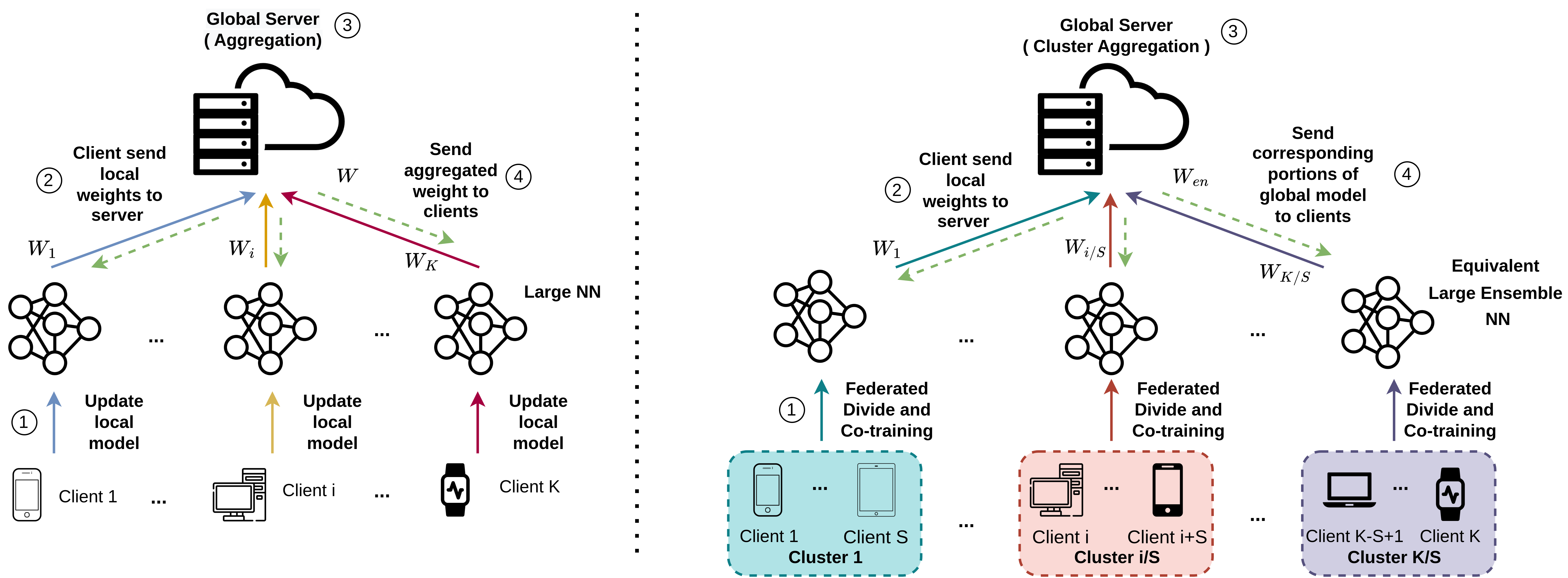FedDCT: Federated Learning of Large Convolutional Neural Networks on Resource Constrained Devices using Divide and Collaborative Training
We introduce FedDCT, a novel distributed learning paradigm that enables the usage of large, high-performance CNNs on resource-limited edge devices. As opposed to traditional FL approaches, which require each client to train the full-size neural network independently during each training round, the proposed FedDCT allows a cluster of several clients to collaboratively train a large deep learning model by dividing it into an ensemble of several small sub-models and train them on multiple devices in parallel while maintaining privacy. In this collaborative training process, clients from the same cluster can also learn from each other, further improving their ensemble performance. In the aggregation stage, the server takes a weighted average of all the ensemble models trained by all the clusters. FedDCT reduces the memory requirements and allows low-end devices to participate in FL. We empirically conduct extensive experiments on standardized datasets, including CIFAR-10, CIFAR-100, and two real-world medical datasets HAM10000 and VAIPE. Experimental results show that FedDCT outperforms a set of current SOTA FL methods with interesting convergence behaviors. Furthermore, compared to other existing approaches, FedDCT achieves higher accuracy and substantially reduces the number of communication rounds (with $4-8$ times fewer memory requirements) to achieve the desired accuracy on the testing dataset without incurring any extra training cost on the server side.
PDF Abstract

